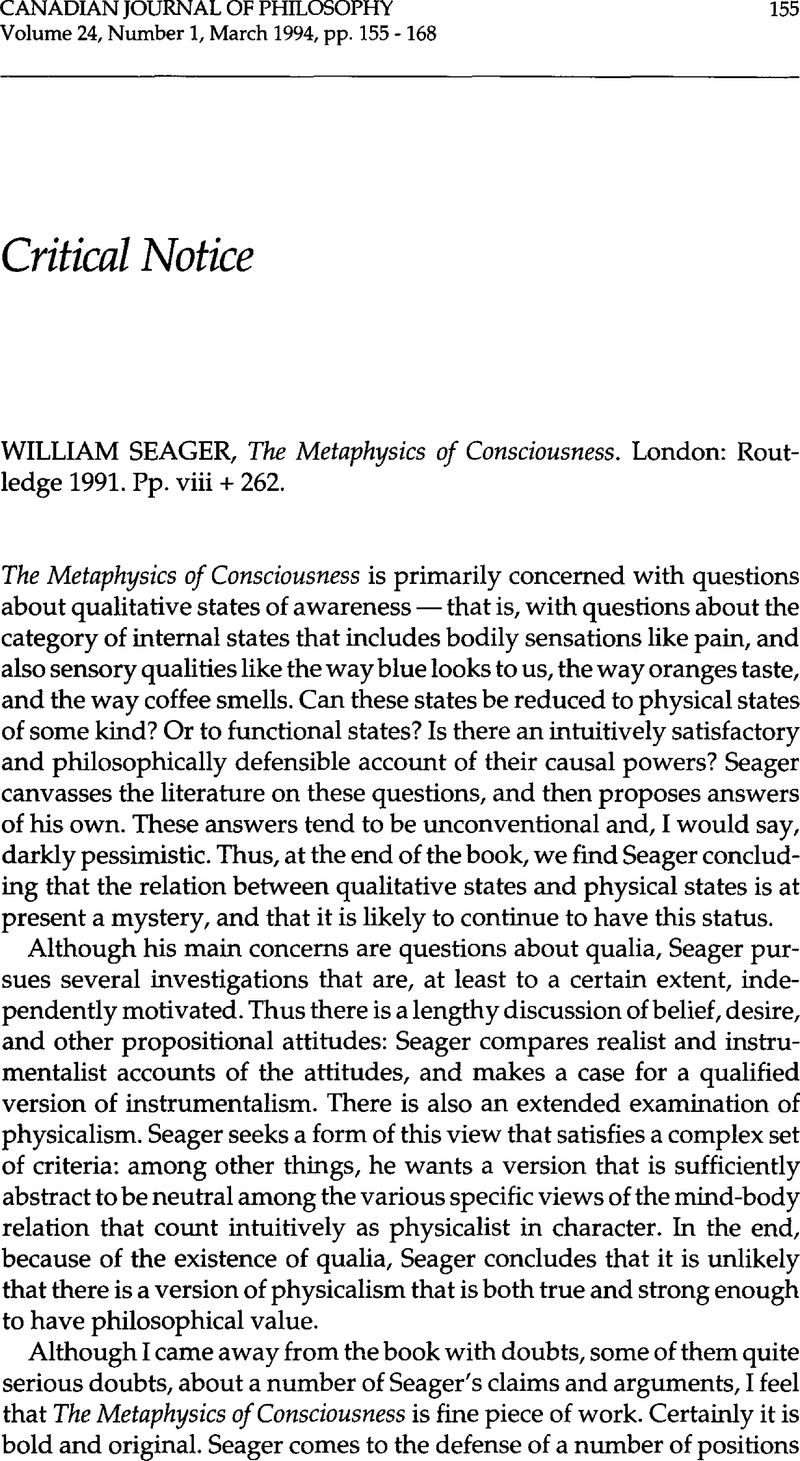No CrossRef data available.
Article contents
William Seager The Metaphysics of Consciousness. London: Routledge 1991. Pp. viii + 262.
Published online by Cambridge University Press: 01 January 2020
Abstract

- Type
- Critical Notice
- Information
- Copyright
- Copyright © The Authors 1994
References
1 Jackson, Frank ‘Epiphenomenal Qualia,’ Philosophical Quarterly 32 (1982) 127-36CrossRefGoogle Scholar. See also Jackson, Frank ‘What Mary Didn't Know,’ Journal of Philosophy 83 (1986) 291-5CrossRefGoogle Scholar.
2 See Hill, Christopher S. Sensations: A Defense of Type Materialism (Cambridge: Cambridge University Press 1991)CrossRefGoogle Scholar.
3 See Nemirow, Lawrence ‘Physicalism and the Cognitive Role of Acquaintance,’ in Lycan, William G. ed., Mind and Cognition (Oxford: Oxford University Press 1990) 490-9Google Scholar. See also David Lewis, ‘What Experience Teaches,’ reprinted in Lycan, 499-519.
4 Another objection is based on Kaplan's distinction between character and content. See, e.g., Kaplan, David ‘Thoughts on Demonstratives,’ reprinted in Yourgrau, Palle ed., Demonstratives (Oxford: Oxford University Press 1990) 34-9Google Scholar.
According to this objection, it is possible to mobilize Kaplan's distinction to establish the following conditional: even if it is true that Mary acquires new propositional knowledge on leaving the black and white room, it may still be false that she acquires propositional knowledge of new facts.
It is easiest to illustrate the objection by focusing on indexical knowledge of qualitative states, that is, on knowledge that is most naturally expressed in sentences like the following:
So this is the distinctive intrinsic characteristic that is possessed by perceptual presentations of yellow things.
(Imagine Mary uttering this sentence when she first sees a lemon.) Very roughly speaking, the idea is to acknowledge that indexical knowledge of qualia is different in character than all of the knowledge that can be expressed using physical or functional terminology, but to deny that this gives us a reason to think that such knowledge must be different in content. (If there is no reason to think that indexical knowledge is different in content, the objection claims, there is no reason to think that it is knowledge of a new kind of fact.)
5 See, e.g., Bratman, Michael Intention, Plans, and Practical Reason (Cambridge, MA: Harvard University Press 1987)Google Scholar.
To show that this claim is arguable, I offer the following argument: if it is assumed that we have tacit knowledge of a fairly comprehensive folk theory of action, it is possible to explain our ability to make intuitive assessments of the proposals of action theorists; but without this assumption, the prospects of giving a satisfactory explanation of this ability seem rather dim.


